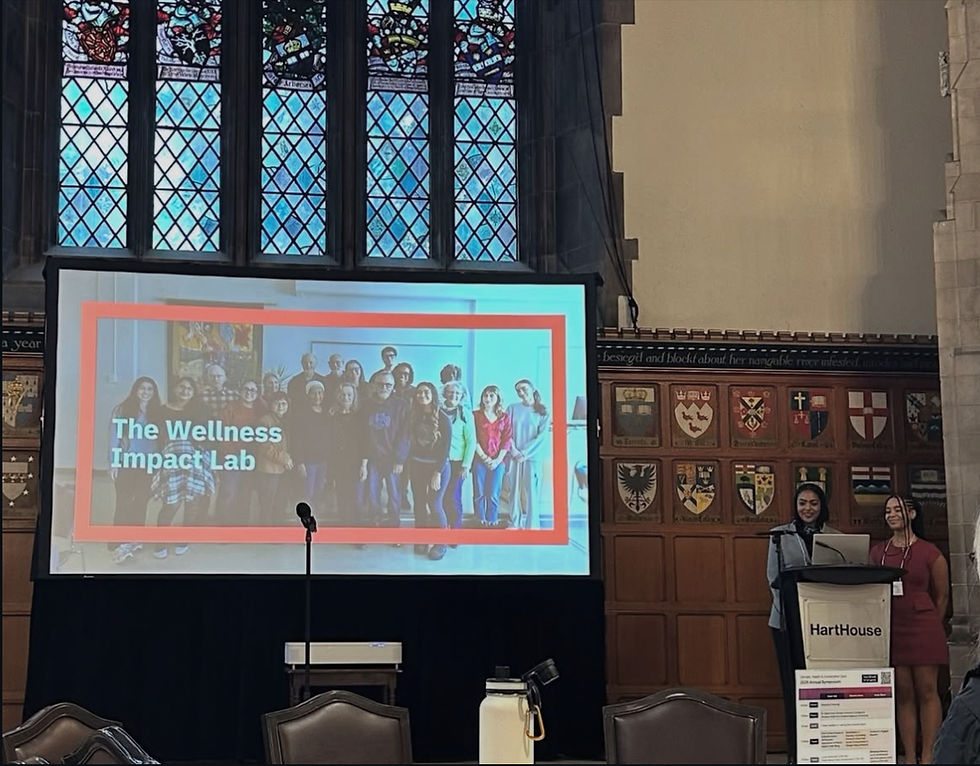The Power of Climate Cafés in Universities
- lc89
- Nov 3, 2025
- 2 min read

Project Summary
At the Dahdaleh Global Health Intern Symposium (April 2025), research assistants Sophia Bryan-Carbonell and Sarah Merghani shared insights from their work on Climate Cafés at York University. Their presentation explored how Climate Cafés support student mental health by creating safe, inclusive spaces to process climate-related emotions like eco-anxiety, grief, and overwhelm.
Why Climate Cafés?
While universities equip students with climate knowledge, few offer emotional support. Climate Cafés bridge that gap by fostering open, non-judgmental dialogue. Rather than promoting action, these spaces center connection, care, and emotional resilience.

Our Work at WIL: Fostering Climate Connection and Well-Being
Over the past year, the WIL Team has been working to create meaningful spaces for students to engage with the climate crisis. Through 11 Climate Cafés hosted across campus and online, we’ve provided opportunities for open dialogue, reflection, and connection. To spread the word, we focused on outreach, tabling, and social media promotion, ensuring our events were accessible and visible to the campus community. We also helped evaluate emotional impact and participation trends, learning more about how these gatherings supported students’ well-being. Our participants were primarily women and international students, many of whom shared that they had never heard of Climate Cafés before attending. Yet after participating, students consistently reported greater emotional comfort and a deeper sense of connection to both peers and the planet
What We Learned
One of our biggest insights was that awareness matters! Many students simply didn’t know these spaces existed, but once they did, the experience often became personally transformative. Testimonials from attendees highlighted themes of community, reflection, and belonging, emphasizing how important it is to have safe, supportive spaces to talk about climate emotions. Of course, there were barriers too, some students hesitated to attend due to the emotional nature of the topic or uncertainty about what to expect. However, we found that offering flexible, inclusive, and hybrid formats helped make the Climate Cafés more approachable and welcoming.
Looking Ahead
As we continue this work, our future goals include:
Integrating Climate Cafés into York’s existing wellness programming, such as Mental Health Week and Earth Month.
Expanding accessibility through hybrid and multilingual sessions.
Strengthening our evaluation methods by using validated pre- and post-measures to better understand how participation affects climate emotions and overall well-being.
Through these efforts, we hope to deepen the impact of Climate Cafés and continue building a campus culture that supports emotional resilience, community, and action in the face of climate change.
This project was presented at the 7th Annual Global Health Intern Symposium.
Find the full event recap here:
.png)



Comments